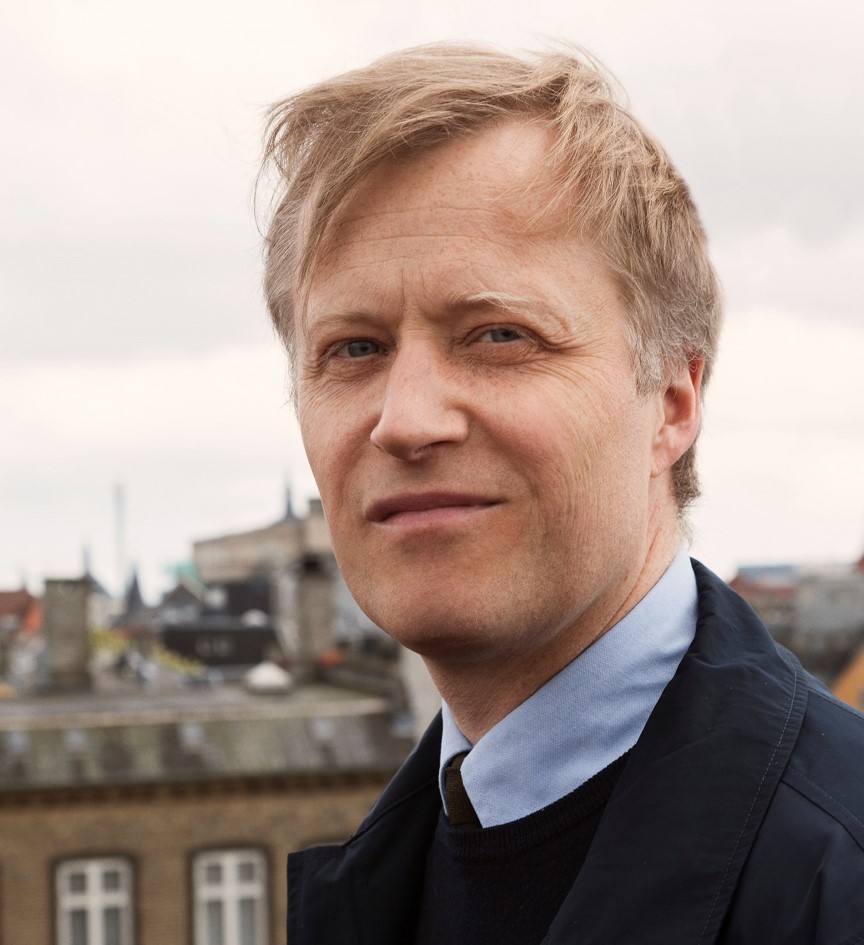The Busan Biennale, an international contemporary art show that takes place in the southern port city, is ready to demonstrate that the role of art has become more essential than ever in these pandemic-hit times.
“In a situation of a crisis, an art space can be a space of reflection. It can be a space where you can think and share your thought with other people,” Busan Biennale Artistic Director Jacob Fabricius told The Korea Herald during an interview last week in central Seoul.
“It won’t make the COVID-19 go away of course, but you can reflect and share things. I think that is why it has been important for us to push forward with the biennale,” said Denmark-based Fabricius, who was appointed as the artistic director in August last year. The biennale is one of the few art festivals being held around the world this year with the global pandemic causing numerous cancelations.
The Busan Biennale 2020, which will kick off on Sept. 5 and run through Nov. 8, takes place at three venues: Museum of Contemporary Art Busan, Old Town and Yeongdo Harbor. Titled “Words at an Exhibition -- An Exhibition in Ten Chapters and Five Poems,” this year’s edition of Busan Biennale will approach the audiences in by portraying the city through different art genres -- literature, visual art and music.
The biennale will evolve around literary works by 10 fiction writers and one poet who were asked to write on the characteristics of the city of Busan. After these were written, visual artists and musicians were given the stories, or some asked the director to select one, and created their own art pieces inspired by the literature and the city of Busan.
A total of 90 artists from 34 countries -- 11 authors, 68 visual artists and 11 musicians -- are participating in the biennale.
“There is a very strong connection between literature, visual art and music in general. I thought it was an interesting approach,” Fabricius said. “Literature is like a cornerstone in knowledge and cultures. It can describe a certain situation and historical events.”
When Fabricius visited Korea last summer, he spent considerable time discovering young Korean writers, traveling to bookstores in Korea.
“I was surprised there are not many English books (Korean literature translated into English). Then I found an English bookstore in Seoul, called ‘Seoul Selection.’ They had amazing books and a lot of short stories. I could get familiar with a lot of writers there,” he said.
The title of the biennale was inspired by “Pictures at an Exhibition,” the most famous composition by the Russian Composer Modest Mussorgsky (1839-1881) who created the musical piece based on 10 paintings by his close friend, Russian painter Viktor Hartmann.
As most international artists have not been able to visit Busan due to the pandemic, the biennale team had to be creative in communicating with the artists and installing their artworks. Sometimes the exhibition coordinators walked through the city with a camera to help the artists understand the city.
“We are in a situation where we can’t travel, so we have to find a new method of organizing. I think it is a great experience for us,” Fabricius said. “(As a director) It is important that you are with the team, developing and building things together.”
The installation of art works has been completed by communicating live with the artists through video.
When it comes to hosting an art event during the pandemic, a strong determination to carry on and the team’s positive mindset are required more than ever.
“I think it is pretty much about attitude. If you think you can do it -- and if you want to do it -- it is a matter of taking responsibility,” he said.
What Fabricius expects of the audiences at the biennale is to have curiosity, which he regards as the “most incredible thing,” through the different art genres that portray the city’s historical events, culture as well as the pandemic times.
“If you can create a little bit of a curiosity, it may be a little spark in the beginning, but it can turn into a fire,” he said. “You can enter through literature, music and visual art. Hopefully, you can become a detective in Busan and look at all the traces and use your imagination.”
By Park Yuna (
yunapark@heraldcorp.com)








